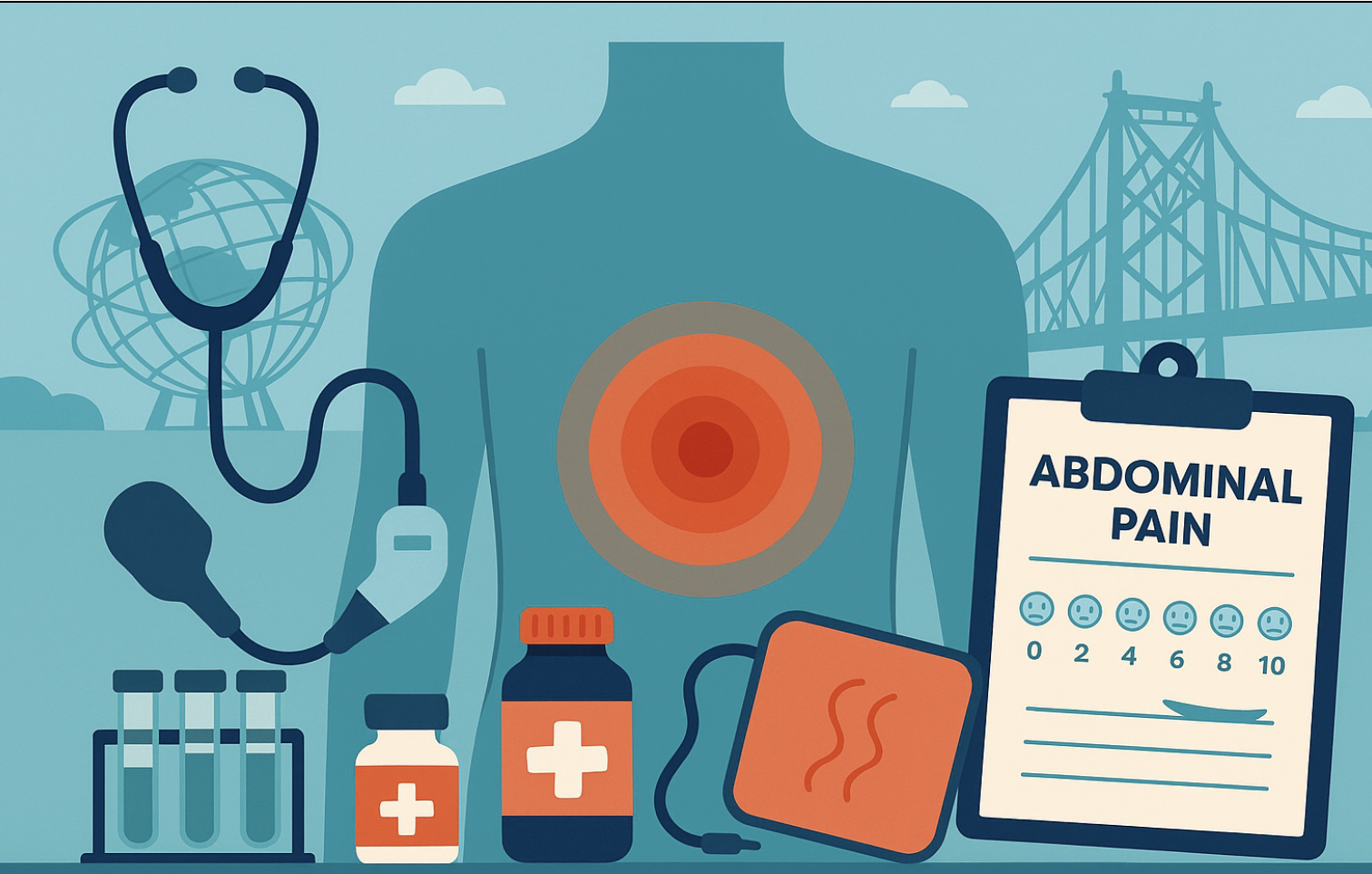Abdominal pain refers to any discomfort between your chest and groin. If you have persistent abdominal problems, it may be a sign of something that you need to address. Even if you have an occasional or recurring issue, you may want to prevent it from happening again. The specialists at the Medex Diagnostic and Treatment Center in Queens, NY will figure out what’s causing your pain — and treat it.You can learn what your pain is telling you when your belly’s hurting. Submit to a thorough examination from a gentle, caring specialist. At Medex, the doctors rely on cutting-edge diagnostic equipment to put your mind at ease, find ways to improve your health and address problems before they get worse.
Avoid Abdominal Pain When Possible
The best solution to abdominal pain is to avoid it completely. The first step is to maintain a healthy diet and lifestyle that contributes to your longevity and happiness. That includes regular checkups. You may think you should see a healthcare provider only if you’re feeling sick, but the specialists at the Medex Diagnostic and Treatment Center believe that most pain and suffering can be prevented.
They recommend a healthy lifestyle that works for you to prevent illness. At the multi-specialty center in Queens, you’ll gain access to an experienced gastroenterologist, as well as other specialists, to help you develop a lifestyle to avoid abdominal pain. Primary care doctors, pain management experts, urologists and cardiologists all provide advice and treatment options necessary to eliminate abdominal pain from your life.
Since everyone is different, foods and lifestyle choices that work for someone else may have a negative effect on you. Figuring these things out with a specialist is the ideal way to take care of yourself. Undergoing regular checkups with specialists is a great habit to get into to catch health problems before they get worse. Consider periodic procedures, such as:
When Should You Seek Treatment?
Call Medex right away when you’re hurting. Even though most abdominal pain doesn’t indicate anything too serious, it’s always better to be safe than sorry. The body is complex, and there are many different reasons for you to be feeling pain.
Some symptoms, however, shouldn’t be ignored. They may signal that something serious really is going on. Some of the danger signs to be aware of include:
- Trouble breathing
- Abdominal pain if you’re receiving cancer treatment
- A sharp pain that starts suddenly
- Blood in your stool
- Vomiting
- Fever
- Difficulty swallowing
- Gas and bloating
- Pain, constipation or diarrhea that lasts longer than a week
When Abdominal Pain Gets Serious
Abdominal pain is often the result of minor problems, such as mild food allergies, occasional heartburn or even certain types of exercise. At other times, you may be experiencing a symptom of the flu or food poisoning. There are certainly many reasons for abdominal pain.
But in some cases, something more serious may be brewing. While the most common cause of abdominal pain is gas and indigestion, you may be showing signs of a more troublesome condition, such as:
- Appendicitis
- GERD
- Hemorrhoids
- Barrett’s esophagus
- Celiac disease
- Crohn’s disease
- Diverticulosis
- Gastritis
- H Pylori
- Irritable bowel syndrome(IBS)
- Peptic ulcers
- Ulcerative colitis
- Pancreatitis
Treatments for Abdominal Pain
Your Medex doctor figures out whether your next move is buying an over-the-counter chalky pink substance, avoiding a certain restaurant or arranging for a procedure. The first line of defense for preventing and treating belly pain is to change your diet. If certain foods, like fried food, consistently cause you heartburn, your doctor may suggest that you avoid greasy meals and snacks.
A diet high in fiber, low in fat and full of fresh fruits and vegetables is the best cure for minor abdominal pain. It’s also a boon for the overall health of your body. When further tests reveal a more serious condition, you may be treated with:
- Medication specifically designed to treat ulcers, gastrointestinal reflux disease and inflammation
- Antibiotics to treat an infection that’s causing your abdominal pain
- Numbing agents administered through spinal or local corticosteroid injections to manage chronic pain
Chronic, persistent or even occasional severe abdominal pain must be diagnosed properly to avoid further complications. Trust the doctors at the Medex Diagnostic and Treatment Center to root out the cause and recommend the best line of treatment for your specific condition. Contact this Queens practice today for an appointment before a minor issue turns into a major problem.

